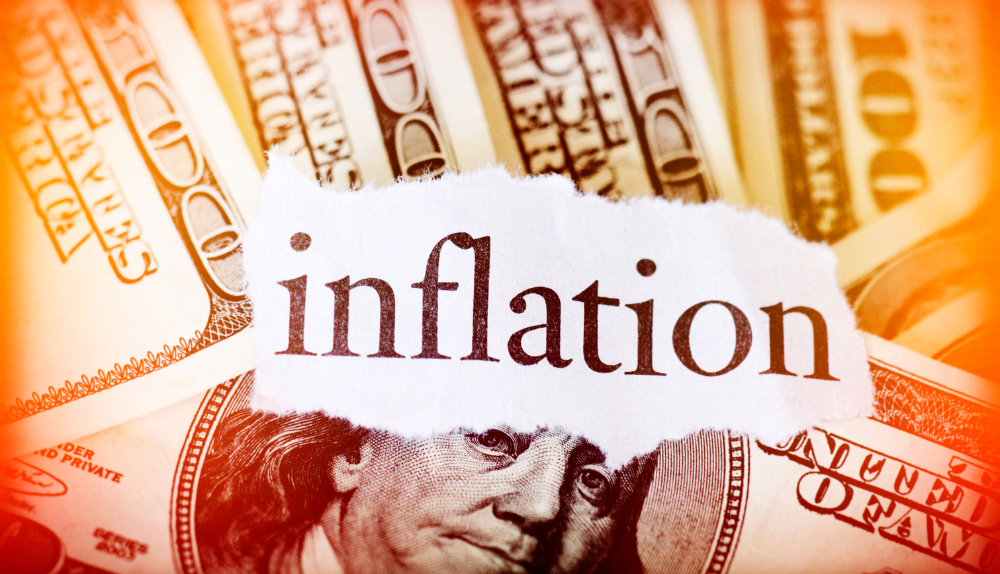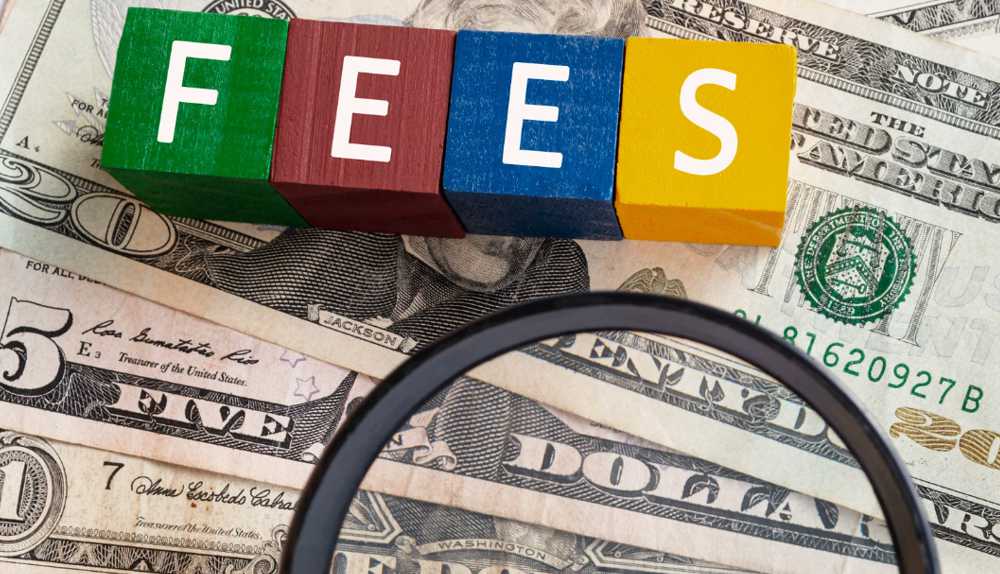
By max May 31, 2023
Most businesses wind up because of insufficient funds to meet the expenses or fulfill their working capital requirement. Inflation impacts nearly every part of running a company—from the cost of the goods and services to pricing your services. Inflation causes a sudden hike in prices, making it difficult for small business owners to execute their business. You can calculate it by comparing the cost of the goods at different points in time.
Inflation occurs when the demand increases exponentially and the production units have to work harder to meet the surge in demand. When inflation occurs, people think about how it affects their spending habits, household needs, and other basic requirements. This article will help you understand how inflation affects merchant account as a business owner.
How Inflation Occurs?

We’ve seen how the value of the currency has declined over time. A few decades ago, people could buy their favorite model of sports car for as little as $3,500. If you intend to buy a vehicle with this money in today’s time, the dealer won’t accept it even as a down payment. That’s a live example of inflation. The car that could have been easily bought in the 70s with a few thousand dollars is now priced 10x higher.
As the value of the currency fluctuates, we are no longer able to spend our money the way we did earlier. When the price hikes, our purchasing power declines. And at the speed at which it occurs is called inflation. We’ve seen one of the largest inflation hikes during the COVID pandemic. As the government focused on controlling the recession and stabilizing the economy, inflation kept surging. An important question is, does inflation affect your merchant account? How exactly?
Inflation Affects Merchant Accounts – How?
Inflation affects businesses differently. Some businesses are resistant to the change in the business landscape, which makes it difficult for them to thrive in a competitive economy where inflation is at its peak. For instance, some of your competitors might keep the price of the products and services steady just so they can get customers from other market players.
Now, you can either raise the prices and risk losing your customers to the competitors or keep the prices steady and risk losing your business. Those in niche industries with little competition get an advantage here. They can raise the prices however they like without the fear of losing their customers. These businesses are more resilient to inflation and other unfavorable economic conditions.
Another factor is the industry you are in. Merchants selling luxury items, such as those running a jewelry store, will have a more challenging time during inflation than those operating grocery or retail businesses. That’s because when inflation surges, customers cut back on expensive items. Simply put, when inflation hikes, people stop buying sweets and cars and focus on essential goods. So, if you are in a business selling essential items, resisting inflation won’t be challenging for you.
Here, the brand plays a role too. An established and reputable brand that has a huge customer base is highly likely to fight inflation better than those who have recently started a business. Even if your competitors sell products at a cheaper price, your loyal customers will pay a few extra dollars to buy from your store.
However, protecting your business from inflation completely is still challenging for businesses of all types and sizes. Below we’ve discussed some common ways inflation affects your merchant account. Although it doesn’t apply to all businesses, most merchants experience the following during inflation.
Higher Transaction Processing Fees

An interchange or transaction fee is charged by credit card networks, like Visa and Mastercard. For every transaction processed through cards, a small percentage of the fee is deducted from the merchant’s account. Visa and MasterCard had dismissed the idea of increasing the interchange rate during the pandemic.
The interchange fee is charged to process card transactions and also to offset the risk of risky transactions. For example, losses occurring from chargebacks or fraudulent transactions can be easily balanced with the processing fee. The fee is ridiculously higher for online transactions and for high-risk merchants, as they carry a higher risk of fraud. Inflation can result in increased credit card processing fees, making each card transaction pretty expensive for the merchant.
Your Customers’ Spending Habit Change
A lot has changed for merchants and customers since the global pandemic. Customers have adopted a contactless payment system, as it’s more convenient for them to process digital transactions than paying in cash. Inflation also changes their spending habits.
As mentioned before, they are more careful about spending unnecessarily on non-essential items. With the rising inflation, the merchant might have to deal with low sales volume and decreased revenue. How much your sales and revenues will be affected by inflation depends on the number of loyal customers you have and the nature of your business.
Higher Operating Cost
The cost of supplies and raw materials has been increasing constantly. And this hike in the prices doesn’t seem to be stopping anytime soon. Inflation doesn’t just increase the prices of raw materials and equipment, but it results in a hike in wages and employee benefits. The energy industry has witnessed the severe impact of inflation, making utility bills, electricity, and transportation more expensive now than ever before.
The increased employee wages, high cost of transportation, and increase in the prices of other expenses can contribute to the operating cost eventually. Inflation, thus, increases the cost of running a business. Meeting this high operating cost can get tricky if the merchant doesn’t have a stable income.
Difficult to Obtain Business Loan
A high fed rate can increase interest rates. The higher the fed rate, the costlier it is for banks to exchange their reserves overnight. This, in turn, makes borrowing money from the banks more expensive for merchants. It’s predicted that the Fed will keep on increasing the fed rate until it reaches 2.75%.
Although it’s done to stabilize the economy and encourage customers to spend less, the positive effects of this higher Fed rate will take longer to show than the immediate effect of this hike in interest for merchants. It’s important to evaluate the loan conditions carefully before borrowing. If the Fed raises its rates, those who’ve borrowed variable-rate loans will be affected.
Fortunately, there are a few things merchants can do to control the impact of inflation on their business. Below we have listed some effective steps to deal with the rising inflation.
Implement a Surcharge
If a majority of your customers pay through credit cards, consider implementing a surcharge. It’s a great way to recover the interchange fee so long as it doesn’t affect customer experience. Surcharge refers to an additional charge implemented on credit card transactions.
Alternatively, you can implement cash discounting, which gives your customers a discount if they choose any payment method other than a credit card to pay for their purchases. It’s a highly effective choice for merchants who do not want to compromise on their customer experience. Both options have their own benefits and drawbacks and choosing one over the other is your decision. If you are already offering competitive prices, customers might not mind paying a surcharge on credit card transactions.
Try Alternative Payment Methods

If none of the above strategies work for your business, you can encourage customers to pay through alternative payment methods. PayPal, Digital Wallets, and cash, for example, are some best payment alternatives to credit card transactions.
These won’t incur a hefty transaction fee, although PayPal and digital wallets have their own fee structure for domestic and international transactions. So, read the terms carefully before integrating these digital payment wallets into your payment infrastructure. Payment through cryptocurrency is another alternative to credit/debit card payments.
Improve Efficiency
Do you notice an increased cart abandonment rate? If your customers are adding products to their cart but leaving your website when making the payment, there must be a problem with your checkout page. Shorten it and request only the essential information from your customers. As mentioned above, inflation affects merchants that accept credit/debit transactions only. While it makes sense to support contactless payments, an efficient way to fight inflation would be accepting cash payments. This will save you the exorbitant card processing fee.
Reduce Operating Cost
Making informed decisions, like automating manual tasks by choosing a cost-effective software application, can make a big difference to your bottom line. Maybe, you can find cheaper alternatives to your existing software. Small changes might not make as big of a difference as removing credit card payments from your payment infrastructure, but they can help reduce your operational cost to some degree.
Conclusion
Inflation has a great impact on merchants operating all sizes and natures of businesses. While some are less affected by the increasing prices of supplies, others might experience a drastic change in their sales and revenues. Adopting the above-listed steps can help keep your business running in challenging times. It’s important to choose the acquiring bank or a card network wisely, as each credit card company has varying transaction fees.
